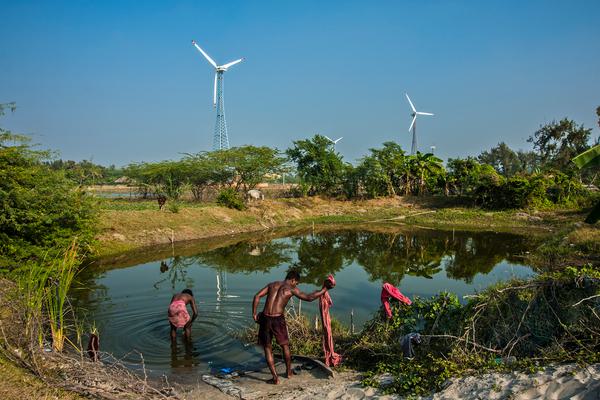Just Transitions Dialogue: Exploring the Need for International Rules Based on Local Realities
2 February 2023

The concept of “just transition” – a whole-of-society approach to decarbonisation that respects human rights while promoting sustainable development, the eradication of poverty, and the creation of decent work and quality jobs – has come increasingly centre stage in national and international discussions on finance, energy, agriculture, and other key industrial transitions to net-zero.
Broad uptake of the just transition concept is not only welcome but essential to managing the social disruption that is inevitable in such wide-scale systems changes. But there is also a growing and serious risk that just transition language is increasingly misused and misapplied, intentionally and unintentionally, without sufficient clarity or accountability.
On October 5-7 2022, IHRB in partnership with Wilton Park – and with support from the Ford Foundation, Laudes Foundation, and the Swiss Federal Department of Foreign Affairs – hosted a high-level Just Transitions Dialogue to explore this challenging state of play and identify practical steps, tools, and approaches required for ensuring swift climate action that is truly “just”. Four key elements were identified as essential to achieving greater coherence, comparability, and accountability over the social dimensions of climate action:
- Risks and Impacts: The actions of public and private actors engaged in transition processes will inevitably pose risks to potentially affected groups, including workers, communities, indigenous peoples, and consumers. These adverse impacts should be actively prevented and mitigated through ongoing human rights due diligence.
- Opportunities and Benefits: The fulfilment of human rights and requirements for a dignified life are foundational to workers, communities, indigenous peoples, and consumers impacted by transition processes. These and other affected stakeholders should be able to negotiate and access the opportunities and benefits, as well as trade-offs, that the pathway to the green economy entails.
- Agency and Accountability: Deliberate inclusivity and meaningful engagement should be part of all transition plans, processes, and outcomes in order to achieve bottom-up support for the necessary disruptions to come. Both risk prevention and opportunity maximisation are dependent on building accountability to, and ensuring the agency of, potentially affected groups in transition planning and decision making.
- Transformational Systems Change: A just transition cannot simply replace an extractive carbon economy with a system of green extraction where fundamental power relations remain unchanged. A sustainable and just future requires more fundamental reshaping of economies to produce regenerative systems that address unequal power dynamics head on.



